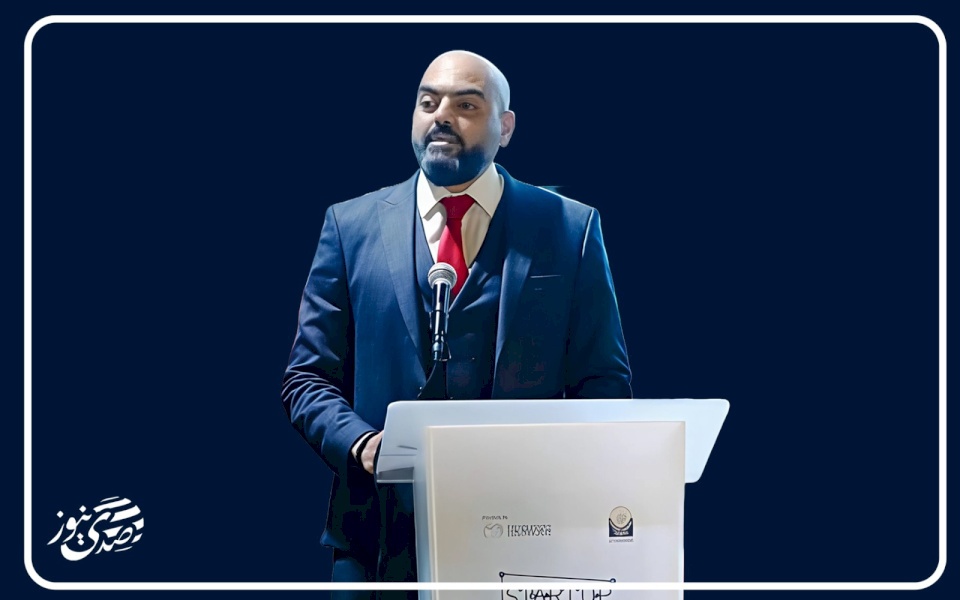
The Massacre Has Stopped... But Wars Will Begin
The massacre has stopped, but the war has not ended.... This is the only sentence my mind is circulating!!
The cannons have fallen silent to give way to the quiet noise, and the smoke has withdrawn from the sky to return to the chests. The era of bombardment has ended, and the era of heavy questions has begun. What happened in Gaza was not merely a battle between an army and resistance, but a reshaping of the consciousness of peoples and of the entire region's maps.
The massacres have ostensibly ceased, but the upcoming wars are multiplying in the shadows: wars of influence, legitimacy, and meaning. The Israeli occupation did not emerge victorious from Gaza, but it left determined to redefine victory according to its own metrics. Today, it sows the seeds of a "booby-trapped peace" under the banner of reconstruction and weaves a new administration for the sector that keeps it under control through an aid economy, not through weaponry. Meanwhile, in the West Bank, the occupation continues its silent expansion through settlement, Judaization, and the pursuit of consciousness before action, transforming daily life into a masterful form of long-term oppression.
Thus, the occupation manages the Palestinian scene: no complete victory, nor total collapse—rather a perpetual management of the crisis to keep the land hostage, the people exhausted, and the idea suspended between hope and despair. But the more dangerous aspect of the continued occupation is the erosion of the internal fronts.
In Gaza, the battle will begin within Hamas itself: between a wing that sees the necessity of political transformation and regional repositioning, and another that clings to the discourse of absolute resistance as the sole reference for survival. These are not merely organizational disagreements, but struggles over the identity of the project itself and over who holds the decision-making power and legitimacy after a war that drained everything.
In contrast, the Palestinian leadership in all its colors stands before a historical entitlement that cannot be postponed. The old equations that governed its political behavior can no longer cope with a world that has drastically changed. The world today does not listen to slogans but to actions, and it does not care about speeches but about viable projects. From here, the Palestine Liberation Organization is called upon to redefine its intellectual, political, and diplomatic tools to regain its position as an effective national representative, not as a bureaucratic administration that receives aid and manages waiting.
What comes after the war in Gaza imposes on the Palestinian leadership to engage with the sector with a new mentality that transcends the binary of control or rupture. Gaza is not a political burden, but rather the gateway to national legitimacy and the barometer of Palestinian will. Only conscious partnership can restore unity between the West Bank and Gaza, between geography and destiny. It must prove—to the world and to its people beforehand—that it is capable of renewal without compromising, and of adaptation without breaking, to transform from an administrative authority into a leadership that possesses a project that gives meaning to politics and direction to the homeland.
As for within Israel, the scene is no less deteriorating. Israeli society is experiencing its deepest divisions since the establishment of the state. Netanyahu's government is in open conflict with the army, while the religious right is swallowing the state from within, as the trust of Israelis in their institutions erodes. The recent war did not unite Israel as its leaders hoped, but revealed the limits of its power and the fragility of its moral narrative. Israel, emerging from the war, is more radicalized, more fearful, and less certain of its existence.
What awaits us is not peace, but the multiplicity of wars and the changing faces of conflict. Media wars over narratives, economic wars over reconstruction, social wars over consciousness and identity. The occupation will attempt to create a "new Palestinian" stripped of will, reducing his cause to daily survival rather than liberation, while the Palestinian is tested on his ability to transform disaster into awareness, and defeat into a new beginning.
The massacre has truly stopped, but what will follow it is more dangerous than the bombardment itself. The upcoming war will be a war of ideas and concepts, a war over who owns the narrative and who writes history. We must either begin our real battle—the battle of reconstructing the self and the collective Palestinian mind—or we will surrender to repeating the tragedy under new names. History does not forgive those who misread its defining moments. And today we are truly at a defining moment: either we rewrite Palestine as we want it, or others will write it as they desire.

Will America Strike Iran? An Extensive Reading of Regional and International Conflict

Netanyahu and the Second Phase: Between Halting Progress and the Test of the Palestinian R...

Ukraine in European Calculations: Managing the Conflict Rather Than Engaging in It

Is There Any Point in the Continued Existence of the Palestinian Authority?!

There Is More to Do Than Push the Palestinian People to Suicide

Does the Peace Council Align with Palestinian Legitimacy?

The Israeli Killer and the Authority of Obedience and Compliance

